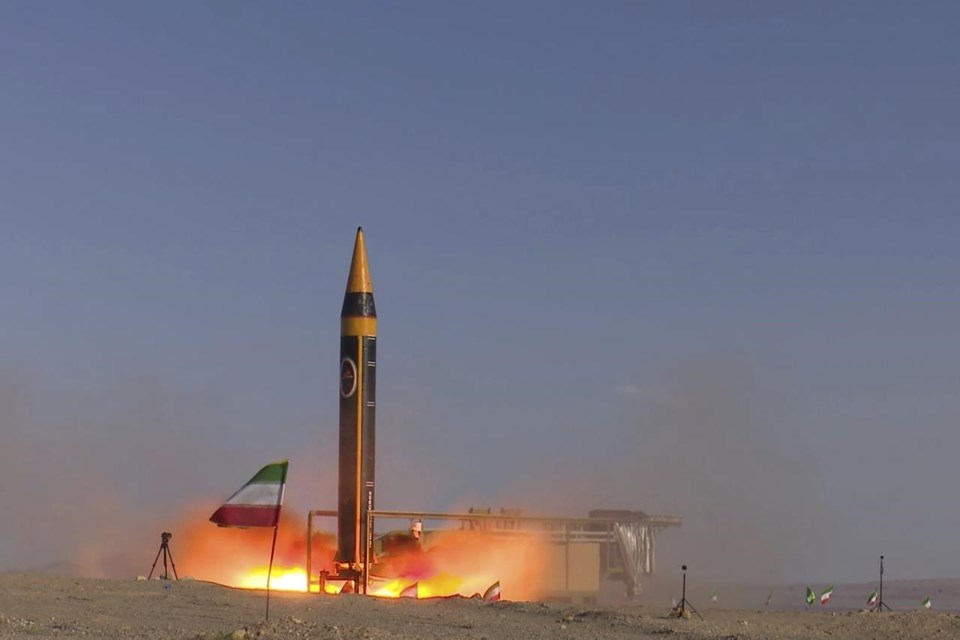WASHINGTON (AP) ÔÇö The U.S. on Wednesday imposed sanctions on a group of people and firms based in Iran, China, Hong Kong and Venezuela, tied to the development of Iran's ballistic missile and drone programs.
The penalties come as the United Nations' restrictions on Iran missile-related activities under a Security Council Resolution are set to expire, as well as the E.U. restrictions on Iran's ability to obtain nuclear and conventional arms.
Treasury's Office of Foreign Assets Control sanctioned 11 people, eight entities, and one vessel for having allegedly supported IranÔÇÖs Islamic Revolutionary Guard, Ministry of Defense and Armed Forces Logistics in their production and proliferation of missiles and drones.
Included in the sanctions are Iran-based equipment firms and their directors, a Hong Kong-based distributor of electronic components several Iranian officials including the Defense Attach├ę in Venezuela, Jaber Reihani and the general cargo vessel PARNIA, which has been used for defense cargo exports.
Despite the pending expiration of the U.N. resolution, the United States is committed to countering IranÔÇÖs procurement, development, and proliferation of missiles, drones and other military weapons, according to a Treasury statement.
Brian Nelson, Treasury's under secretary for terrorism and financial intelligence said IranÔÇÖs "reckless choice to continue its proliferation of destructive UAVs and other weapons prolongs numerous conflicts in regions around the world." A UAV is an unmanned aerial vehicle, commonly known as a drone.
The U.S. will continue to take action to disrupt IranÔÇÖs proliferation of UAVs and other weapons to oppressive regimes and destabilizing actors, and we encourage the international community to do the same.ÔÇŁ
Among other things, the sanctions deny the people and firms access to any property or financial assets held in the U.S. and prevent U.S. companies and citizens from doing business with them.
President Joe Biden's administration is providing Russia with drones and to build a drone manufacturing plant east of Moscow as President Vladimir Putin's government invades Ukraine.
ÔÇťWe are against the war in Ukraine,ÔÇŁ President Raisi said in June as he met with media executives on the sidelines of the worldÔÇÖs premier global conference, the high-level leadersÔÇÖ meeting at the U.N. General Assembly.
Tensions between the U.S. and Iran remain high, despite the from Iran in September in exchange for the release of nearly $6 billion in frozen Iranian assets.
Fatima Hussein, The Associated Press




